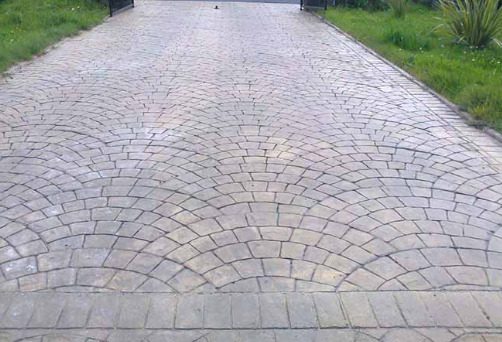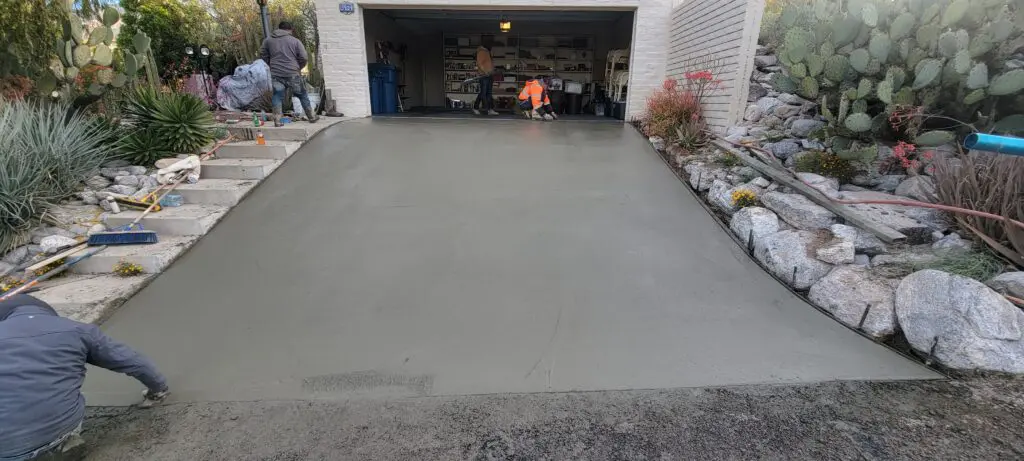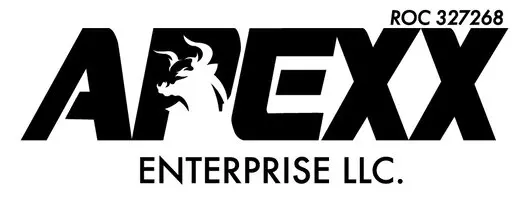How Often Should You Seal a New Concrete Driveway?
Call us at (520) 301-0316
integrity. Sealing is one of the most important aspects of driveway maintenance. The question is: How often should you seal a new concrete driveway? This guide will answer this question and provide you with insight into the best practices to seal concrete driveways in order to protect your investment while enhancing curb appeal.
Sealing Concrete Driveways is Important
Sealing your concrete driveway is important for several reasons.
The sealant protects the driveway against damage from water, UV rays, and ice. It stops water from penetrating the concrete and causing cracks.
- Stain prevention: A sealant forms a barrier to prevent oil, grease, and other stains from penetrating concrete.
- Enhanced durability: Sealed cement is more resistant to wear, extending your driveway’s lifespan.
- Improved Look: Sealing improves the color, texture, and overall appearance of concrete.
Sealing a Concrete Driveway – How Often?
Sealing a concrete driveway is dependent on a number of factors. These include the type of sealant, the climate in the area, and how much traffic it receives. Sealing a concrete driveway is generally recommended every 1-3 years. Here are some guidelines you should consider:
Types of Sealants
Sealants vary in their protection and durability.
They are known for their affordability and easy application. They last between 1-3 years.
- Epoxy and Polyurethane sealers: These offer a higher protection level, and can last for up to five years, but are more costly.
- Penetrating sealers: These sealers penetrate the concrete to offer a deep level of protection. They can last for 5-10 years.
Climate Conditions
The climate plays an important role in determining the frequency of sealing your driveway. Unsealed concrete can be severely damaged in regions that experience harsh winters. Sealing every 1-2 years is recommended in such areas. In milder climates sealing every 2-3 years may be sufficient.
Traffic Analysis and Usage
Driveways that are subjected frequently to heavy traffic may need more frequent sealing. Consider sealing your driveway every 1-2 years if you have a driveway that supports heavy loads or multiple vehicles.
Call us at (520) 301-0316

Sealing Your Driveway? Here Are Some Signs to Look Out For
Look for these signs to determine if you need to seal your concrete driveway:
- Water Absorption: It’s time to seal the concrete if water is no longer beading on the surface but instead soaks in.
- Fading Colour: A faded or dull color indicates that the sealant has worn off.
- Visible cracks: When the sealant wears away, small cracks may appear. This leaves the concrete susceptible to further damage.
- Staining: If the sealant is no longer effective, it may be because you have noticed stains caused by oil, grease, or other substances.
Sealing a Concrete Driveway
Sealing a driveway is a multi-step process. Here is a step-by-step guide.
Prepare
1. Cleaning the Surface: Use a power wash or a stiff bristle brush with a cleaning solution to remove any dirt, debris, and stains.
2. Repair Cracks: Fill cracks and holes with concrete repair products.
3. Dry Surface: Make sure the driveway is completely dried before you apply the sealant.
Application
1. Choose the Right Sealant: Select a sealant according to your climate, traffic conditions, and personal preferences.
2. Apply the Sealant: Use a sprayer or roller to evenly apply the sealant across the driveway.
3. Follow Manufacturer’s Instructions: Follow the instructions of the manufacturer for drying time and application.
4. Allow to dray: Allow the sealant to dry for the time recommended before you use the driveway.
Call us at (520) 301-0316

Benefits of Professional Sealing Services
Although DIY sealing can be done, a professional sealer, such as Apexx Enterprise LLC, has several advantages:
- Expertise & Experience: Professionals possess the knowledge and expertise to choose the correct sealant and correctly apply it.
- High Quality Products: Professional Services use sealants of commercial grade that offer superior protection and durability.
- Time Savings: Hiring professionals will save you both time and energy and ensure that the work is completed efficiently and effectively.
- Long-Term Results: Professional sealing will provide you with longer-lasting results and reduce the need to reapply.
Maintenance of your Sealed Driveway
To maximize the lifespan of your driveway, it is important to maintain it properly. Here are some tips.
- Regular cleaning: Sweep your driveway regularly to remove dirt and staining.
- Promptly Clean Up Spills: Clean up spills of oil, grease, and other substances immediately to avoid staining.
- Avoid de-icing chemicals: They can cause damage to sealed concrete. Instead, use sand or cat litter to provide traction.
- Monitor Damage: Regularly check your driveway for wear and tear and fix any problems as soon as possible.
Conclusion
Sealing your driveway protects your investment while enhancing the curb appeal of your home. You can increase the durability and longevity of your concrete driveway by following the recommended guidelines and knowing how often to seal it. Choose the right sealant and consider your local climate. Also, watch for signs that indicate it’s time to redecorate.
Contact Apexx Enterprise LLC for professional sealing services. Our team of experts uses proven products and techniques to achieve exceptional results. Our expert sealing services will protect your driveway while providing a long-lasting, beautiful surface. Contact us to set up an appointment today!
Frequently Asked Questions
When should you seal a newly laid concrete driveway?
Wait at least 28 days after pouring the concrete before sealing it. The concrete will cure and reach its maximum strength.
Is it possible to seal a driveway made of concrete too frequently?
Over-sealing will cause the sealant to build up, making it slippery and discolored. Keep to the sealant type and local conditions recommended frequency.
When is the best season to seal a driveway made of concrete?
The temperatures are moderate in spring and fall, making them ideal for sealing. Sealing in extreme temperatures can cause the sealant to perform poorly.
What is the cost of sealing a concrete driveway with sealant?
Costs for sealing a driveway vary depending on factors such as the size, type, and whether or not you hire a pro. Expect to pay an average of $0.15 to $0.25 per sq. ft. for a DIY job, and $0.50 up to $2.50 for professional sealing.
